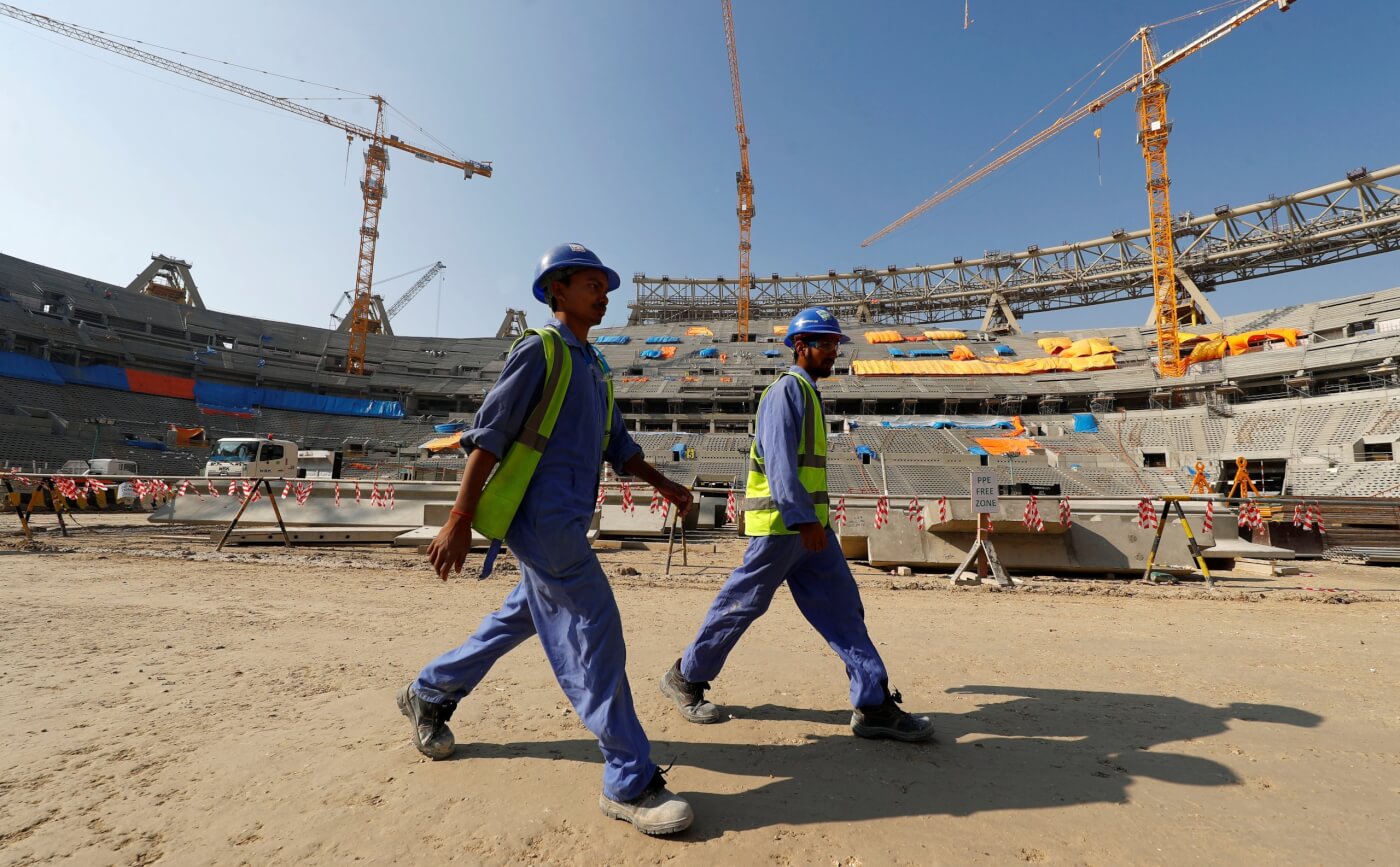In August 2020, as a response to global criticism, Qatar introduced “comprehensive and long-lasting” labour reforms which involved a new minimum wage as well as putting an end to the kafala sponsor system which required workers to request permission from their employers to change occupations. In theory, these changes would have vastly improved the problematic labour conditions in Qatar, yet more than a year after the introduction of the reforms it is clear that for migrant workers not much has changed.
The UN’s International Labour Organisation states that 400,000 workers will benefit from the reforms, yet many companies fail to adhere to the new labour laws. While the new minimum wage is only £1 per hour plus food and accommodation, several of Qatar’s migrant workers have reported earning less than that. One migrant worker from Uganda reported earning 75p per hour while another worker from Kenya reported earning just 65p per hour. In addition, the housing provided to the workers is often extremely overcrowded with poor sanitation and a lack of privacy. Even the scrapping of the kafala system has not provided workers with the benefits they were promised. Many workers suffer 12 hour shifts 7 days a week, leaving them with little time to search for new job opportunities.
Since the 2010 decision to allow Qatar to host the 2022 World Cup, there has been increased criticism surrounding the responsibility FIFA holds in ensuring workers’ rights are being upheld in the construction of World Cup infrastructure. In the last 10 years, over 6500 migrant workers from India, Pakistan, Nepal, Bangladesh, and Sri Lanka have died in Qatar as a result of poor labour conditions. On 20 May 2021, six Nordic associations sent a letter to Gianni Infantino, president of FIFA, calling on him to uphold basic human rights for workers involved in the World Cup planning. They stated:
“It is a matter of utmost importance for the football community across the globe … that the theatre of the greatest dreams in football also can be the stage of human rights, respect and anti-discrimination”
The poor pay and labour conditions in Qatar have led to protests from 2 separate security companies, one of which had provided security guards for FIFA in February 2021. While the Qatari authorities state that the dispute was resolved, there is evidence that Qatar is trying to draw attention away from its human rights violations of migrant workers.
On 5 May 2021, Qatar’s state security services arrested and detained Malcolm Bidali, a Kenyan blogger and security guard who spoke out about the labour conditions he experienced in Qatar. Qatari authorities remain that Bidali was arrested for violating security regulations, yet human rights groups have stated that his arbitrary detention is likely due to his articles about workers’ welfare. In one of his articles, Bidali, who writes under the pseudonym “Noah”, commented on the labour accommodation:
“We were crammed, six of us, into a tiny room in a labour camp … Said room was characterised by bunk beds, mould and bedbugs … eight toilets for 72 of us on each floor.”
On 13 May 2021, Amnesty International called for Qatari authorities to reveal where Malcolm Bidali is being detained, however the authorities have not yet disclosed his whereabouts. It is known that Bidali had been allowed one short phone call to his mother in which he explained that he is being held in solitary confinement. Amnesty concluded by stating that Qatari authorities must:
“…outline any internationally recognizable offense against him and ensure his right to due process is fully respected, including ensuring he has legal assistance. If Malcolm is detained solely for peacefully exercising his right to freedom of expression, he must be released immediately and unconditionally.”

